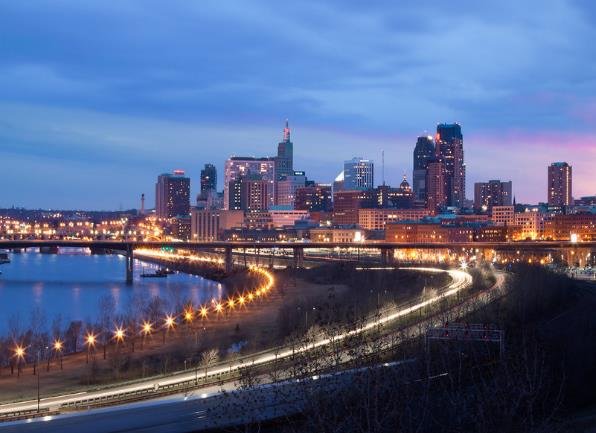Adult-use cannabis is closer than ever to becoming a reality in Minnesota. A key legal hurdle was cleared this week when an administrative law judge signed off on the draft regulations that will oversee the industry.
The move allows the Minnesota Office of Cannabis Management (OCM) to officially publish the rules and begin issuing licenses to aspiring cannabis entrepreneurs. It’s a pivotal shift — and for many applicants, the green light they’ve been waiting on for months.
The Rulebook Is Now Law — Without Edits
Minnesota’s cannabis regulators didn’t just squeak through this round. They passed clean.
The judge approved the draft rules exactly as proposed, no edits, no alterations. That’s a big deal. It means the OCM’s framework — which was built after a long public feedback process — met all legal requirements and didn’t raise any red flags about fairness or feasibility.
Eric Taubel, the OCM’s interim director, sounded upbeat. “The judge’s approval of our proposed rules without changes shows that we did our work,” he said in a statement released Monday. He credited the office’s outreach to the cannabis community as a reason for the smooth review.
And now? The rules will be published in the Minnesota State Register and come into effect later this month. From there, licenses can finally start flowing.

Who’s First in Line for a Cannabis License?
If you’ve already completed the application process — you’re next.
More than 600 applicants are already through the initial preapproval process, which began last fall. That means the OCM can now begin issuing licenses to that pool, as long as all requirements are met. It’s the first concrete step toward setting up dispensaries, cultivators, manufacturers, and more.
But it’s not just about ticking boxes. Minnesota is placing a major emphasis on social equity in its cannabis rollout. The idea? Give a leg up to individuals and communities disproportionately affected by past marijuana laws.
One twist: the court system just gave that effort a boost.
-
Last week, a Ramsey County judge ordered the state to move ahead with its planned lottery for social equity applicants.
-
That ruling came after mounting fears that the state might abandon the lottery system altogether.
-
Over 1,000 applicants qualified for social equity licenses, many aiming for license categories that are capped — meaning only a limited number are available.
For those capped categories — such as cultivator, retailer, and mezzobusiness — the lottery will decide who gets in. That’s expected to happen this summer.
Here’s a Quick Breakdown of What’s Capped and What’s Not
Only certain cannabis business licenses are subject to a cap. Here’s how it plays out:
| License Type | Subject to Cap | Lottery Required |
|---|---|---|
| Cultivator | Yes | Yes |
| Mezzobusiness | Yes | Yes |
| Manufacturer | Yes | Yes |
| Retailer | Yes | Yes |
| Delivery Service | No | No |
| Event Organizer | No | No |
| Transporter | No | No |
So if you’re eyeing a license that isn’t capped, and you meet the social equity requirements, there’s no lottery in your way. You’ll just need to get your paperwork right.
Big Expectations, Slow Rollout
Cannabis legalization in Minnesota has been slow, measured, and full of public comment periods. That’s no accident.
State officials are trying to build a regulated market that avoids the pitfalls seen elsewhere. Look no further than New York, where delays and legal challenges have created a fragmented rollout.
Minnesota wants to avoid that chaos.
But delays have tested patience. Many hopeful business owners have been paying rent on empty storefronts, waiting for clarity. Investors have been circling too — some nervous, some hopeful.
One cannabis consultant based in Minneapolis, who asked not to be named, said clients are “in limbo.”
“You’ve got folks ready to go. They’ve lined up suppliers, real estate, even branding. But they can’t move until those licenses start coming out,” the consultant said. “It’s like being at the starting line with a blindfold on.”
The Bigger Picture for Cannabis in Minnesota
Minnesota legalized adult-use cannabis in 2023, but sales haven’t started yet. That gap between legalization and actual access has led to a growing underground market, which the state hopes to eventually pull into the legal fold.
But it’s tricky.
Right now, the only legal way to buy cannabis in Minnesota is through tribal dispensaries or if you’re already part of the state’s medical program. That’s not much.
Legal sales from non-tribal businesses aren’t expected to begin until early 2025, depending on how fast the licensing process unfolds.
This approval helps move that along. Still, real sales? Months away.
What’s Next for the Market?
Summer’s shaping up to be a turning point.
Once the lottery is held and licenses start getting issued in earnest, things will move quickly. That means:
-
Real construction on dispensary sites
-
Hiring across retail, farming, and production
-
A flurry of activity from ancillary businesses — security, marketing, law firms, you name it
Some municipalities are also preparing for the shift. Local governments can opt out of allowing dispensaries, but many are choosing to regulate rather than prohibit.
And consumers? They’re just waiting. Many residents say they’re excited for safe, taxed, and legal access.
One Minneapolis resident, Amanda Shaw, said she’s been following the rollout for over a year. “We voted for this. It passed. I just want to know when I can walk into a store and buy an edible,” she said with a laugh.
That time is getting closer. Not quite here, but closer.
